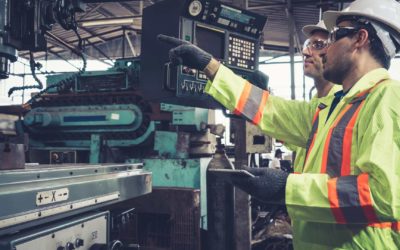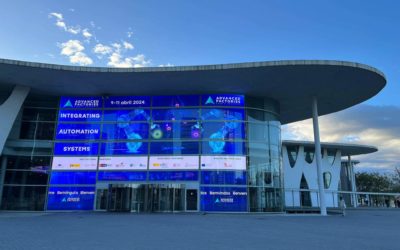Historic increases in energy and raw material costs, new sustainability regulations and strong competitors such as China and Turkey. European industrial companies are facing a context in which it is increasingly difficult to improve or even maintain the profitability of their businesses. Here’s how digitization and a commitment to technologies such as Mapex’s MES system can help them win this game.
Inflation and the impact of the war in Ukraine have been challenging the European industrial sector for months. All companies, to a greater or lesser extent, are suffering from the escalation of energy and raw material prices to the point that some of them have been forced to partially or totally halt production.
Added to this situation is the growing concern about climate change. Failure to implement measures to reduce the carbon footprint and optimize the use of natural resources can be very costly: financial penalties associated with non-compliance, brand reputation problems, loss of customers and partners, etc.
At Mapex, we want to help you overcome these challenges, which is why our MES platform incorporates tools to monitor energy consumption in real time, put an end to raw material waste and eliminate the use of paper on the shop floor.
MES system to manufacture more sustainably and economically
1. Get to know in detail and in real time your energy consumptions
In most cases, industrial companies are unable to know in detail and in real time how much electricity, water or gas they consume in their facilities. Without this information it is impossible to identify potential for further optimization or implement effective continuous improvement actions to reduce energy costs.
With an MES solution such as Mapex, which incorporates IIoT technology, organizations can always know what the real (and not theoretical) energy consumption of each machine, manufacturing order and/or production of a particular reference is.
Apart from this real-time monitoring, the system issues an alert when energy consumption exceeds the established limit or when there are machines that are not producing, but for some reason are still consuming electricity (operator carelessness, poor maintenance, obsolete equipment, etc.).
The main benefit of implementing this type of software is to have very valuable information to quickly detect bad practices, make the most of any opportunity for savings and implement sustainability initiatives to reduce carbon dioxide emissions.
In addition, thanks to the MES system, companies can link energy use to the processes running on the shop floor and know precisely what it costs to manufacture each product.
2. Reduce wastage of raw materials
In recent months, the price of many raw materials has risen sharply. The supply chain crisis and the rising cost of these products has forced many companies to optimize the use of resources and to pursue the highest quality in all their production processes.
In fact, if they want to achieve zero-defect manufacturing, industrial companies must implement the Kaizen method: a work philosophy that supports continuous and incremental changes in production processes to achieve operational excellence.
However, this path to continuous improvement only makes sense when companies can measure and evaluate the impact of their initiatives with reliable information obtained directly from the shop floor in real time.
An MES system like Mapex enables them to automatically capture this data and to…
- Detect nonconformities early, identify their root cause and implement corrective actions to avoid rework.
- Find out why certain processes generate excessive scrap and refine and standardize production methods to minimize unnecessary raw material waste.
- Efficiently manage raw material procurement to the production floor and have real-time visibility of inventory to prevent overstocking.
3. Eliminate the use of paper in the production area
Last but not least, an MES solution is also essential to eliminate the use of paper in the factory and, as a result, save costs, be more efficient and promote an initiative that is totally linked to the protection of the environment.
Going paperless is by no means an easy task for many industrial companies, especially those that have not yet started their digital transformation process. However, if only because of the annual increase in the price of paper (currently standing at 2.5%), it is worth starting this transition.
In addition, opting for a paperless factory brings multiple benefits to organizations. As explained in this article, thanks to the digitization of documents, companies save storage space, avoid errors and the loss of important information, have faster access to data, and contribute to protecting the planet (each kilo of paper produced is equivalent to 3.3 kg of CO2).
If these arguments have convinced you and you want to know how we can help you control energy consumption, optimize the use of raw materials and/or eliminate the use of paper in your factory, please contact us.



